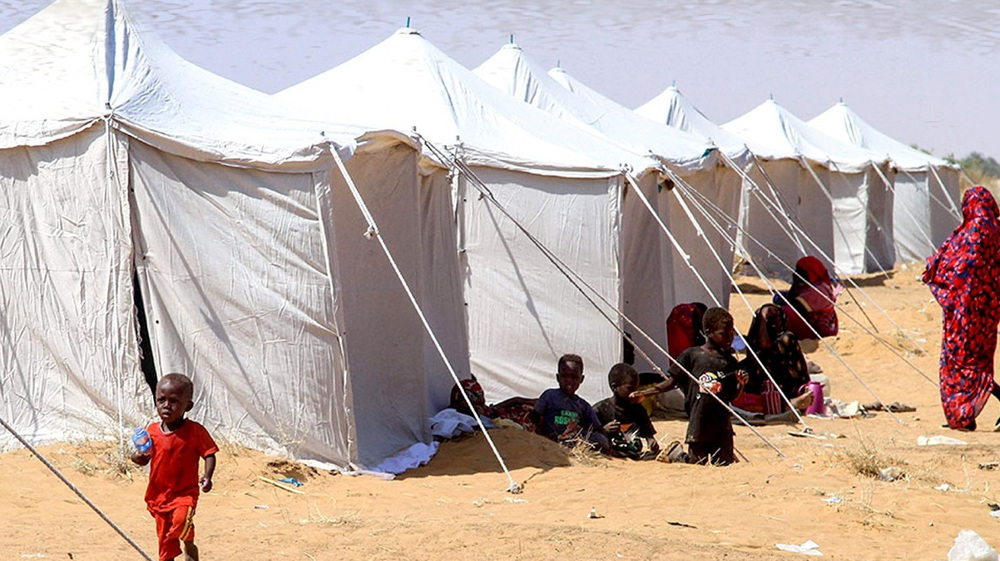Iranian Army holds second day of massive maneuver
Yusef Jalali
Press TV, Konarak
This is how the second day of the Iranian Army's massive maneuver kicked off.
This time, the Ground Force showed its might, by deploying its artillery, choppers and combat UAVs to take down mock enemy targets.
This as the navy also sent its homegrown Tareq and Qadir submarines, which fired torpedos against surface and subsurface targets in the Sea of Oman.
The navy also fired sea-launched cruise missiles to destroy the aggressive vessels in its southwestern waters.
Dubbed Zolfaqar-1400, the massive drill kicked off on Sunday with surface and subsurface vessels, air and naval flights, radars and missile systems.
Held over a million square kilometer area stretching from the Strait of Hormuz to the Sea of Oman and north of the Indian Ocean, the military exercise seeks to upgrade Iran's capability in defending its territorial waters, while sending a message to foreign actors that they are not welcome in the region.
In recent years, the Iranian Armed Forces have displayed a range of homegrown military equipment in annual maneuvers as a show of might to the country's adversaries.
The military says more than 80-percent of the used hardware are built domestically, sending a message to the west that their arms bans have prompted Iran to stand on its own feet and indigenize its defense arsenal.
The ultimate message of this drill is that Iran's army has the power to defend its borders. And what's even more significant is that it does so using entirely indigenous weapons, something which defies decades of US arms embargoes that denied Iran's access to even a bullet from outside its borders.
VIDEO | Displaced families in al-Dabba camp struggle amid severe shortages
VIDEO | Gaza rejects Israeli claims of rising births amid collapse of healthcare system
VIDEO | Gaza’s markets reopen amid ongoing challenges
VIDEO | Gazans slam US military threats against Iran
UNRWA: Israel carrying out 'silent war' in occupied West Bank
VIDEO | Fighting British state
Hamas hails reopening of Rafah crossing as big gain
Bedouin village in West Bank fully emptied due to Israeli settler violence









 This makes it easy to access the Press TV website
This makes it easy to access the Press TV website